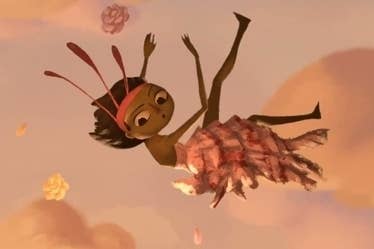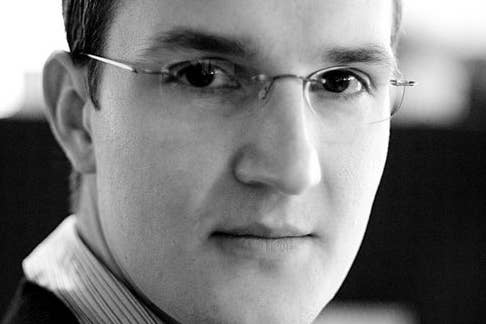How Double Fine left behind its "dark ages"
"Double Fine hasn't grown at all since Brutal Legend" reveals lead programmer
Right now Double Fine are the darlings of the industry, loved by gamers for their quirky titles and Tim Schafer's development history, credited by game makers for proving that crowdfunding could be a credible and lucrative way of cutting the apron strings and developing away from the rules and regulations. But it hasn't always been larks and million dollar paydays for the company.
GamesIndustry International spoke to the studio's lead programmer about how Double Fine picked itself up, found the formula for success, and how it hopes to continue that story with Broken Age.
"It's very liberating being able to talk very early on about stuff and show bugs"
"I guess they were kind of the dark ages, after Brutal Legend 2 was cancelled there was a bit of a troubled time when it wasn't quite clear what was going to happen," Oliver Franzke told GamesIndustry International.
"I think the company really did what they could and they turned it around and it was actually a very risky decision to say 'well, let's just empower people to make their ideas happen.'"
Dark ages isn't an exaggeration, Schafer himself said of that period "we didn't have anything else ready to go and we didn't have much money left in the bank. It was a moment where we almost ended the company."
But in some ways it was the making of the Double Fine we know today, as the company decided to focus on smaller projects. Franzke says that since that time the company has focused on having the right culture and the right goals, rather than unnecessary growth.
"Double Fine hasn't grown at all since Brutal Legend, we're still very much the same team size. In fact, we wouldn't actually be able to put more people into our building because we're maxed out," he laughs.
"It really feels more like a family... A lot of people at Double Fine have been working there since the early days, for ten, 12 years, and it's almost impossible in the games industry to find somebody who's worked for a company for more than two years or something like that."

He credits Schafer with creating that sense of community, calling him "awesome" and "a visionary", but also admits it isn't always easy to strike that balance.
"It's challenging for us sometimes to run with the creativity and take the risk, and to make this financially work, it's not easy but it's possible. You have to choose your projects carefully at the end of the day."
And of course the project that everyone is talking about right now, and will be for some time, is Broken Age. It started life as A Double Fine Adventure, raised $3.3 million on Kickstarter, and is now being split into two parts so an early access version can held to fund ongoing development. Franzke says that there is a pressure on the team to make it work as the first big Kickstarter hit.
"It's not just that we were the first Kickstarter that kicked off the whole big thing of people raising lots of money for projects, I think it's also being so in the public and having this open development process," he admits.
"You get feedback early on and people are generally supportive but also sometimes you get ones that say 'I don't like this' and actually it's not done yet. People are not used to seeing things so early on and that's kind of an interesting space to navigate for sure.
"But so far I must say I've really enjoyed it. I've been working for big companies for a long time and obviously you were never allowed to talk about anything until the official announcement went out, which was usually months away from the final release. It's very liberating being able to talk very early on about stuff and show bugs and stuff like that, those are things you would never normally be able to do."
He points out that a lot of the game's Kickstarter backers are part of the game development community, so often their suggestions are more helpful than the average internet chatter, even on the engineering side of things.
"It's a bumpy road to get from completely relying on someone to else to give us money to doing it ourselves."
The first part of the game is due for release in January next year, and the company has already started work on another project (also funded through Kickstarter) called Massive Chalice. Franzke says both of these projects are vital to the future of the company.
"For Double Fine it's a very important and very critical time because we do want to be basically self sufficient and do self publishing, and not to rely on external money sources in the long term," he explains.
"That should hopefully enable us to reinvest in the projects we want to do, and we can do it at our pace and we can have full control of the project. And then hopefully that's going to pay off and I have no doubt that it will, but it's a very bumpy road to get from completely relying on someone to else to give us money to we're going to do it ourselves."

